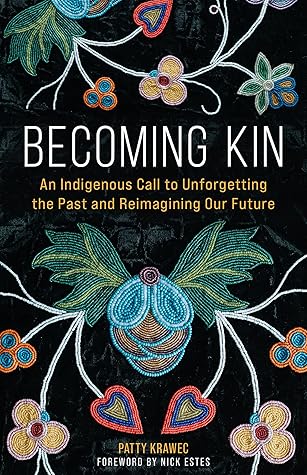More on this book
Community
Kindle Notes & Highlights
by
Patty Krawec
Read between
June 21 - July 8, 2024
But the tests are flawed because, as Kim TallBear says in her book Native American DNA: Tribal Belonging and the False Promise of Genetic Science, they rely on ideas about racial purity that have their roots in medieval Spain and the limpeza de sangre, a belief that intermarriage with non-Christians, or new converts, could taint the pure blood of those who had been Christian for many generations. This belief in pure blood eventually became racial purity, and TallBear questions how that purity gets measured from a genetic standpoint. For example, who are the “pure” tribal members who get
...more
DNA is very good at identifying family relationships. It will tell you if somebody is a parent or a sibling, and it can even identify cousins and other relationships. But it is not good at identifying race because race is not biological; it is not encoded in our DNA.
Belonging involves a reciprocity of claiming and being claimed, of responsibility to the community and community’s responsibility to me. Of seeing and being seen.
Aanikoobijigan: ancestors and descendants. Nii’kinaaganaa: I am my relatives, all of them.
What if white supremacists are her unwanted kin: relatives who need to be addressed rather than simply disavowed and ignored, like family we turn away from at weddings or funerals? For her, this means challenging the beliefs when she sees them in her community, calling people into relationship and conversation. It means actively supporting the work of Indigenous people in reclaiming what was taken. And sometimes it means direct confrontation, like participating in counterdemonstrations when groups like the Proud Boys and others take to the streets. It means taking concrete steps to challenge a
...more
“We aren’t personally responsible for the social relations and material conditions that came before us or that we enter in to, but we can become responsible for what we do in response to those conditions.”
We all, Black and Indigenous, settler and migrant, have at least one axis of power, and so while we gravitate toward those stories of being oppressed, it is important to acknowledge these other stories, particularly if those other stories make up most of your history. “Deciding that we are in fact accountable frees us to act. Acknowledging our ancestors’ participation in the oppression of others (and this is true of everyone), and deciding to balance the accounts on their behalf and our own, leads to less shame and more integrity, less self-righteousness and more righteousness, more humility
...more
Finding home on Indigenous land means living as if this is Indigenous land, not just saying it is.
Churches and governments keep what they stole and tell us, “We said we’re sorry; you have to forgive us.”
When we are quick to put people together in a conversation after harm has been done, the victim, who often still feels unsafe, may agree to a form of reconciliation that doesn’t fully address the wrongs that were done. Rushing toward reconciliation without both parties being fully prepared often results in more harm, particularly when those rushing to repair are part of the dominant society, the settler class with the most political and social power.
This elder offered a different practice. In his scenario, the victim and the wrongdoer would each be taken under the responsibility of separate elders. The victim and the wrongdoer would meet regularly with their assigned elder and work through their respective feelings of victimization and entitlement, of grief and anger. In these separate meetings, they would sing songs, and they would do ceremony. Maybe they would do counseling, and maybe the wrongdoer would complete restitution. It is important for the victim to do the work as well; “hurt people hurt people,” as the saying goes. Throughout
...more
Being a settler or a colonizer is not something you are; it is something you do. It describes your relationship to this land and the people in it. Remember that settlers come to impose a way of living on top of the existing people. Settler colonialism destroys in order to replace. If you are going to stop being a settler and start being kin, that’s where we start. With what you do.
we understand the structural nature of what is happening, Augustine writes, we can turn away from individual feelings of guilt for things we didn’t do. Instead, she says, we can engage collectively with others to “dismantle the structures of inequity.” What if churches sent missions to Wall Street?, she asks. To mining corporations? To Washington? What if churches sent missions to those who are enacting the harm and told them to stop? What if denominations worked together to demand change?


